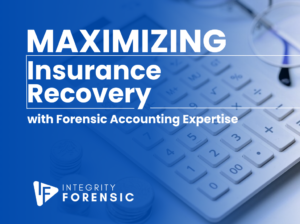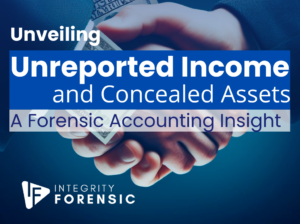When it comes to shareholder financials, accuracy is crucial. Shareholders rely on the financial statements provided by a company to make informed decisions about investing in that company. However, financial statements can be misleading or inaccurate due to a variety of factors. That’s where forensic accounting comes in.
Forensic accounting is the practice of using accounting, auditing, and investigative skills to identify and investigate financial fraud or mismanagement. In the context of shareholder financials, forensic accountants can ensure the accuracy of financial statements and provide valuable insights into a company’s financial health. Let’s explore how forensic accounting can ensure accuracy in shareholder financials.
Identifying errors or irregularities: Forensic accountants can review financial statements and other documents to identify errors or irregularities that may affect the accuracy of shareholder financials. This can include things like misclassified expenses, incorrect revenue recognition, or incomplete disclosures.
Ensuring compliance with accounting standards: Forensic accountants can ensure that a company’s financial statements comply with accounting standards and regulations. This can include things like the Generally Accepted Accounting Principles (GAAP) or the International Financial Reporting Standards (IFRS).
Investigating suspected fraud: In some cases, shareholders may suspect that a company’s financial statements are inaccurate due to fraud or mismanagement. Forensic accountants can investigate these suspicions and provide evidence to support or refute them.
Providing expert testimony: If a shareholder dispute goes to court, forensic accountants can provide expert testimony to support their findings. This can be invaluable in proving the accuracy (or inaccuracy) of shareholder financials.
Improving internal controls: Forensic accountants can also help companies improve their internal controls and financial reporting processes. By identifying weaknesses in these areas, companies can take steps to improve accuracy and prevent future errors or irregularities.
In conclusion, forensic accounting is a valuable tool for ensuring accuracy in shareholder financials. By identifying errors or irregularities, ensuring compliance with accounting standards, investigating suspected fraud, providing expert testimony, and improving internal controls, forensic accountants can help ensure that shareholders have accurate and reliable financial information. If you’re a shareholder, it’s important to consider the value of forensic accounting in evaluating a company’s financial health.
At Integrity Forensic, we have a team of experienced forensic accountants to assist you. Call now for a free consultation: 855-673-9999 or send us a message at questions@integrityforensic.com





